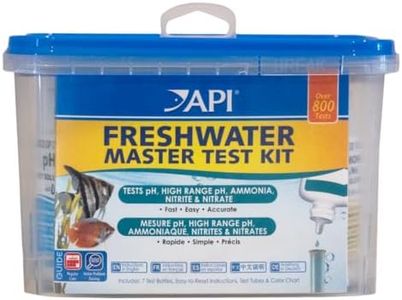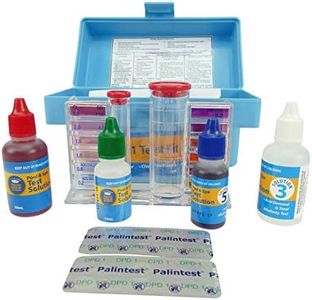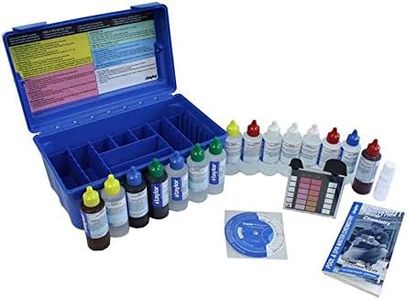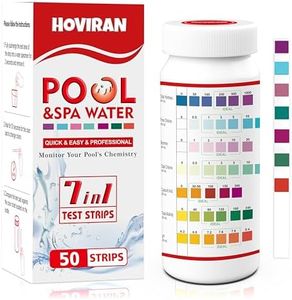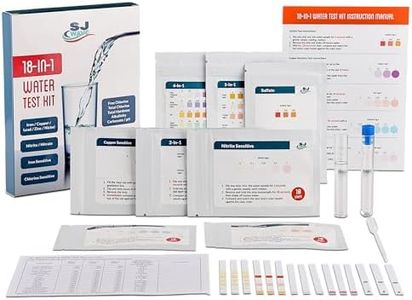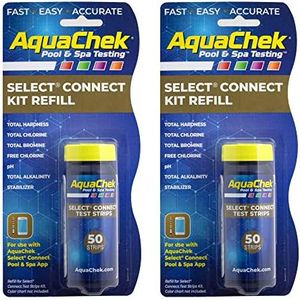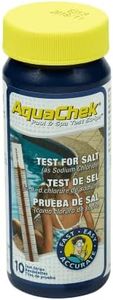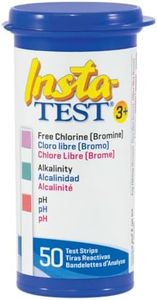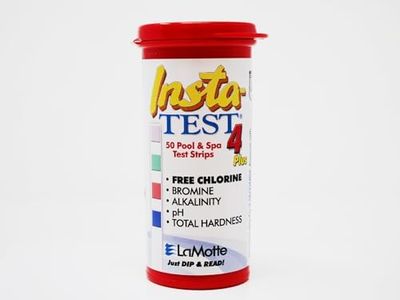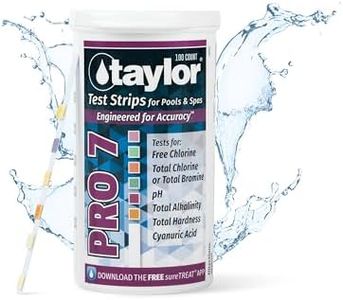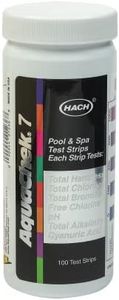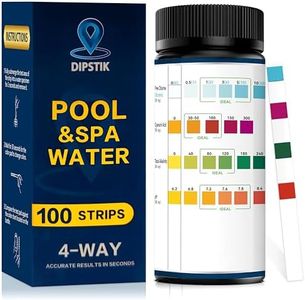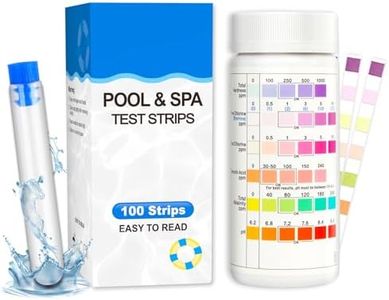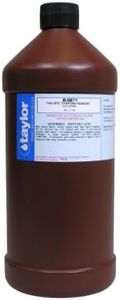We Use CookiesWe use cookies to enhance the security, performance,
functionality and for analytical and promotional activities. By continuing to browse this site you
are agreeing to our privacy policy
10 Best Pool Test Kits
From leading brands and best sellers available on the web.By clicking on a link to a third party's website, log data is shared with that third party.
#1
Winner
Buying Guide for the Best Pool Test Kits
Choosing the right pool test kit is essential for maintaining clean and safe water in your swimming pool. A good pool test kit helps you regularly monitor water quality and balance, which prevents issues like cloudy water, algae, and skin or eye irritation. As you shop, it's important to understand what each feature of a test kit means and how it matches your pool maintenance routine. Think about how often you test, how confident you are reading colors or numbers, and which chemicals you need to measure to keep your pool sparkling and healthy.Type of Test (Strips vs. Liquid Kits vs. Digital Meters)The type of test refers to the way you measure your pool water. Test strips are quick and easy: you dip them in water, then match the color to a guide on the bottle. Liquid test kits involve adding drops of solution to a water sample and comparing the color to a chart. Digital meters give an electronic reading for specific chemicals. If you want fast and simple testing, strips are best. Those who prefer more accuracy and don’t mind a little extra work usually like liquid kits. Digital meters are best for those who want even higher precision and don’t mind learning to use a small device. Your choice depends on your comfort level and how precise you need to be with your pool care.
Parameters TestedParameters are the specific things the kit can measure, such as chlorine, pH, alkalinity, calcium hardness, and cyanuric acid. Basic kits may only test for one or two things, while more advanced kits can cover five or more. It's important to know which chemicals are most vital for your pool. For example, pools with regular chlorine treatments need easy chlorine and pH checks, while saltwater systems may require additional tests. Choose a kit that tests for all the numbers you want to track—more is sometimes better, but make sure you’ll actually use them.
Ease of UseEase of use is about how simple and straightforward the test kit is for you. Look at things like how clear the instructions are, whether the colors are easy to read, and how much time each test takes. If you want stress-free testing, seek kits with clear color comparisons and simple steps. If you have trouble distinguishing subtle color shades or want to test quickly, consider digital or strip options. Choose the one that feels most manageable for your regular schedule.
AccuracyAccuracy is how close your test results are to the real values in your pool water. Generally, liquid kits and digital meters provide more accurate readings than test strips. However, accuracy also depends on following the instructions precisely. Consider how important exact measurements are to you; casual users who want a fast check-up might be happy with strips, but pool perfectionists or those managing larger or frequently used pools might prefer more accurate liquid or digital options.
Frequency of Testing and Kit LongevityHow often you test your pool and how many tests the kit can provide before it runs out are important. Strips are usually single-use, so you’ll need more if you test frequently. Liquid kits have a limited amount of each solution that lasts a certain number of tests, and digital meters may need regular calibration or supply changes. Think about your habits: regular testers may need bulk packs or refillable kits, while occasional users can make do with smaller sets.
